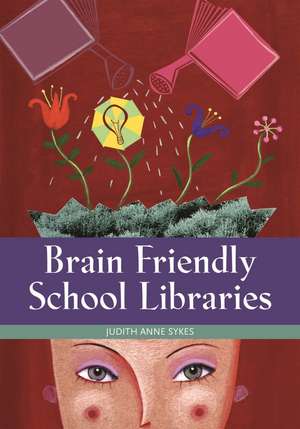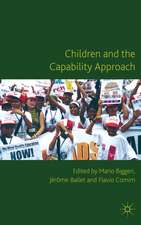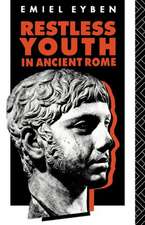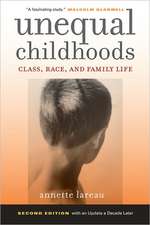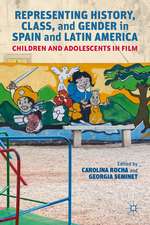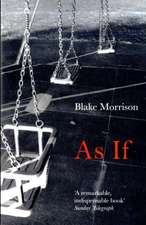Brain Friendly School Libraries
Autor Judith Anne Sykesen Limba Engleză Paperback – 29 dec 2005 – vârsta până la 17 ani
Preț: 216.62 lei
Preț vechi: 272.61 lei
-21% Nou
Puncte Express: 325
Preț estimativ în valută:
41.45€ • 45.01$ • 34.82£
41.45€ • 45.01$ • 34.82£
Carte tipărită la comandă
Livrare economică 22 aprilie-06 mai
Preluare comenzi: 021 569.72.76
Specificații
ISBN-13: 9781591582465
ISBN-10: 1591582466
Pagini: 136
Dimensiuni: 178 x 254 x 10 mm
Greutate: 0.3 kg
Editura: Bloomsbury Publishing
Colecția Libraries Unlimited
Locul publicării:New York, United States
ISBN-10: 1591582466
Pagini: 136
Dimensiuni: 178 x 254 x 10 mm
Greutate: 0.3 kg
Editura: Bloomsbury Publishing
Colecția Libraries Unlimited
Locul publicării:New York, United States
Notă biografică
Judith Anne Sykes has gone from a junior high school language arts/drama teacher, an elementary teacher-librarian, to School Library Specialist for the Calgary Board of Education, Assistant Principal and Principal. Judith consults, makes educational presentations, and has published extensively-locally, provincially, nationally and internationally, including being editor of IMPACT, the professional journal of the Association of Teacher-Librarianship of Canada. She is the author of Library Centre: Teaching Information Literacy, Skills, and Processes K-6 and Action Research: Practical Tips for Transforming Your School Library.
Cuprins
What Neuroscience Tells Us About LearningKey Concepts and LiteratureEllen Langer--Mindful LearningBob Sylwester--Applying Biological ResearchPat Wolfe--Brain Research and Educational PracticeCreating A Brain Friendly School Library PlanGoal 1: Enriched Environments--Teacher-Librarian As Staff DeveloperBrain Friendly SpaceResource-Based Learning--CollectionLearning StylesIntellectual Environments--Teacher-Librarian as Information Literacy AgentInquiry and Action ResearchInformation LiteracyProjectsEmotional Environments--Teacher-Librarian as Cultural EmissarySensory Learning--Literature and the ArtsCooperative LearningReflective LearningReferencesIndex
Recenzii
Sykes, former library specialist turned principal offers an approach to library management and instruction that is based on neuroscience. Highlighted is the concept of the teacher-librarian who can use knowledge of brain research to create a more meaningful learning experience for students and staff. With information for librarians of elementary, middle, and high school, the book gives suggestions for activities that address a variety of learning styles. A list of resources and index are included.
[S]ykes' theory warrants attention..Recommended.
Sykes's recommendations and examples are worth considering..Sykes's ideas should enter a professional development conversation.
An intelligently written book about the role that the school library can play in exercising students' brains. Rooted in current findings on how the brain processes information, and acknowledging several educative models for learning and Information Power's standards for promoting information-literacy development, Sykes's book offers a vision that every school librarian should consider, if not embrace. The first part reviews what neuroscience tells us about learning. Contributing authors relate those findings to classroom planning, making them understandable to the layperson. Subsequent sections suggest components of the school library program that must be addressed including enriched, intellectual, and emotional environments. Further, readers are offered both theoretical and practical approaches to planning and creating these environments and sample lessons. This book will be a handy desk mate to every school librarian and should be a required text in all school media specialist programs.
School librarians looking for new approaches to teaching and learning will find a wealth of information on brain research and its place in the school library in this book..This resource contains research that might come in handy for school librarians who need to justify improving their programs to administrators.
[S]ykes' theory warrants attention..Recommended.
Sykes's recommendations and examples are worth considering..Sykes's ideas should enter a professional development conversation.
An intelligently written book about the role that the school library can play in exercising students' brains. Rooted in current findings on how the brain processes information, and acknowledging several educative models for learning and Information Power's standards for promoting information-literacy development, Sykes's book offers a vision that every school librarian should consider, if not embrace. The first part reviews what neuroscience tells us about learning. Contributing authors relate those findings to classroom planning, making them understandable to the layperson. Subsequent sections suggest components of the school library program that must be addressed including enriched, intellectual, and emotional environments. Further, readers are offered both theoretical and practical approaches to planning and creating these environments and sample lessons. This book will be a handy desk mate to every school librarian and should be a required text in all school media specialist programs.
School librarians looking for new approaches to teaching and learning will find a wealth of information on brain research and its place in the school library in this book..This resource contains research that might come in handy for school librarians who need to justify improving their programs to administrators.
